Typhoid Vaccine for Kids – Types, Cost and Vaccine Schedule

Typhoid is a major health concern in India, with children being more prone to it than adults. Typhoid is caused by Salmonella enterica serovar Typhi (S. Typhi), a human-specific Gram-negative bacterium. Salmonella causes extremely deadly extra-intestinal illnesses.
This contagious disease spreads through contaminated food and water and is caused by a bacterium known as Salmonella typhi. It can impair physical and cognitive development in children. Typhoid fever cases continue to be quite common in countries like India, and the rise of antibiotic resistance has made the problem worse. The most significant preventive tool and strategy utilised to battle and reduce the morbidity and death of typhoid disease is to immunise your baby as soon as possible. So, join us as we explore the remarkable benefits of the typhoid vaccine for kids in India. From its origins to its protective power, let us unravel the captivating tale of this vaccine and how it safeguards our children from the clutches of typhoid.
Also Read: Influenza Vaccine for Babies and Kids
Typhoid Vaccine – What Is It?
Typhoid vaccines help prevent typhoid. Vaccination against this disease is vital (1). Otherwise, it can lead to serious complications. Typhoid is also known to affect young children adversely. Different types of vaccines are available that prevent typhoid – you must always consult your paediatrician to know which would suit your toddler.
Also Read: How to Make Vaccination Fun for Kids
Is Typhoid Vaccine Important for Children?
Yes, the typhoid vaccine is important for children, especially in regions where typhoid fever is endemic or for those travelling to high-risk areas, as it protects against Salmonella Typhi, a bacterium that causes severe illness, high fever, and life-threatening complications. Children are particularly vulnerable to infections due to weaker immune systems, and vaccination significantly reduces the risk of contracting and spreading the disease, ensuring better health outcomes and preventing outbreaks in communities (2).
Types of Typhoid Vaccinations
Typhoid is a serious problem and should not be taken lightly. These are the 3 typhoid vaccine names available in India (3):
- Typhoid Polysaccharide Vaccine
- Typhoid Conjugate Vaccine
- Live Attenuated Oral Typhoid Vaccine
Who Should Get Immunised Against Typhoid?
Generally, typhoid vaccination is recommended for (4):
- People travelling to and around typhoid-ridden countries like India
- People who are in close contact with an infected person
- People who work with Salmonella typhi bacteria in India
In India, however, routine typhoid vaccination is advised as we are more prone to infections. Typhoid vaccine for babies can be given as early as 9-12 months. The Typhoid Conjugate Vaccine or TCV, is administered when the baby is between 9 and 12 months old. As per IAP guidelines, there is no need to give a booster dose of TCV. WHO recommends that people living in high-risk areas like India should have a routine dosage of this vaccine.
Also Read: Child Vaccination and Growth Tracker
Who Should Not Get This Vaccine?
The typhoid vaccine is generally safe and effective for most individuals. However, certain groups of people may not be eligible or recommended to receive the vaccine. Here are some points to consider (5):
1. Age
The live attenuated oral typhoid vaccine (Ty21a vaccine) should not be given to children under six. Alternative typhoid vaccines, such as the Typhoid Conjugate Vaccine (TCV) or Vi Polysaccharide Vaccine, are typically recommended for younger children.
2. Allergy
Individuals who have had a severe allergic reaction (anaphylaxis) to a previous dose of the typhoid vaccine or any of its components should not receive the vaccine. Discussing any known allergies with a healthcare professional before vaccination is important.
3. Immune-compromised Individuals
People with weakened immune systems, such as those undergoing chemotherapy, taking immunosuppressive medications, or living with HIV/AIDS, may have a reduced response to the vaccine. The decision to vaccinate these individuals should be made in consultation with a healthcare professional.
4. Pregnant Women
The safety of the typhoid vaccine during pregnancy has not been well-established. Therefore, it is generally recommended to avoid vaccination during pregnancy unless the risk of typhoid infection is high. Pregnant women should discuss the benefits and potential risks with their healthcare provider.
5. Acute Illness
If an individual is currently experiencing a moderate to severe acute illness, postponing the typhoid vaccination until they have recovered is advisable. However, minor illnesses, such as mild colds or low-grade fever, are not usually contraindicated.
6. Recent Blood Products or Immunoglobulins
Certain blood products or immunoglobulins may interfere with the immune response to the typhoid vaccine. It is recommended to consult a healthcare professional regarding the appropriate timing of vaccination if such products have been recently administered.
7. Travel Duration
If an individual travels to an area with a high risk of typhoid fever but will have a very short stay (less than a week), the typhoid vaccine may not provide sufficient protection in such a short timeframe. Other preventive measures should be emphasised in such cases, such as safe food and water practices.
When Should Your Child Get the Typhoid Vaccine?
Following these general recommendations is appropriate in nations where children are not routinely immunised against typhoid:
Typhim Vi, the inactivated typhoid vaccine, must be administered at least two weeks before the travel date or anticipated exposure for children older than two but under six.
Live typhoid vaccine, also known as Ty21a, is administered to children aged six and older at least one week before travelling to regions at risk for the disease or other potential exposure (6).
Typhoid Vaccine Cost in India
Wondering what the typhoid vaccine for kids costs? The typhoid vaccine price in India is around ₹ 1349.25 – ₹ 1799. It may vary depending on the type of vaccine (polysaccharide or conjugate), and the brand of vaccine used.
Typhoid Vaccine Schedule
The typhoid vaccine schedule for a child in India is included in the list of mandatory vaccinations suggested by the paediatrician right after the birth of a baby. But before giving it to a baby, remember these important things:
| Age Group | Vaccine | Dosage | Booster Shot |
| 9 to 12 months | Typhoid Conjugate Vaccine (TCV) | Single intramuscular dose | At 2 years of age |
| 18 months to 2 years | Typhoid Conjugate Vaccine (TCV) – booster | Single intramuscular dose | After 2 years |
| 4 to 6 years | Typhoid Conjugate Vaccine (TCV) – booster | Single intramuscular dose | – |
Source: https://www.indianpediatrics.net/oct2014/oct-785-803.htm
Things to Avoid Before or After Getting the Typhoid Vaccine
Before giving your child the typhoid vaccine, keep these things in mind (7):
- This vaccine cannot be given if your child is allergic to any vaccine component. The doctor must be made aware of any allergies, much before the vaccination is given.
- Your child must not be even moderately ill when getting the vaccination.
- Anyone with a severe reaction to the previous dose of the same vaccine should not be given another dose.
- Refrain from taking anti-diarrheal medications before or immediately after receiving the Typhoid vaccine.
- To maximise the effectiveness of the typhoid vaccine, it is advisable to avoid close contact with individuals who are already ill, particularly those exhibiting symptoms similar to typhoid fever.
- Avoid consuming raw or undercooked meats, contaminated fruits or vegetables, and untreated water around the typhoid vaccine dosage.
Although the typhoid vaccine is safe, your child may develop a fever for a day or two after the vaccine is taken. You need not panic. Visit the doctor immediately if the fever persists for too long.
What Happens If Your Child Misses the Dose?
If you are worried that your toddler may have missed the vaccine at 9 months, don’t worry – you can still give it to her before she turns one. Moreover, TCV can be given to your child at any time (8).
Possible Risks and Side Effects of the Vaccine
Typhoid vaccine side-effects are generally mild – they tend to go away in a few days. In rare cases, there may be an allergic reaction. The side effects have been discussed below (9):
1. Serious Side-Effects
Generally, the typhoid vaccine does not have any serious side effects. Contact your paediatrician in case of:
- Signs of a severe allergic reaction like dizziness, hives, and swelling of the face and throat
- Difficulty breathing
- Weakness
- Very high fever
- Changes in behaviour
Although rare, these may manifest within a few hours of taking the vaccination.
2. Less Serious Side-Effects
Some less severe side effects of the typhoid shot are:
- Fever
- Headache
- Redness and swelling
- Itching and soreness at the place where the injection is given
- General discomfort
FAQs
1. Is it normal to have a fever after typhoid vaccination for children?
It is normal for children to experience a mild fever after receiving the typhoid vaccination. This is a common side effect and usually resolves independently without complications. However, if the fever persists or worsens, it is advisable to consult a healthcare professional for further evaluation.
2. Is it possible to get typhoid after vaccination?
While the typhoid vaccine is highly effective, it does not provide 100% protection against the disease. In rare cases, it is still possible to contract typhoid even after vaccination. However, the severity of the illness is often reduced in vaccinated individuals. Maintaining good hygiene practices and avoiding exposure to potentially contaminated food or water sources is essential to minimise the risk of contracting typhoid.
3. Can a child get the typhoid vaccine if they are allergic to eggs?
Yes! Unlike some vaccines (like flu or yellow fever), the typhoid conjugate vaccine (TCV) and ViPS vaccine do not contain egg proteins. However, if the child has severe allergies (e.g., to vaccine components), consult a doctor before vaccination.
4. Does breastfeeding affect the typhoid vaccine’s effectiveness in infants?
No, breastfeeding does not interfere with the typhoid vaccine. A baby can receive TCV at 9–12 months, even if they are still breastfeeding. The vaccine works independently of maternal antibodies.
Typhoid is a serious disease that is best prevented in young children. If you are alert and careful, you can ensure a healthy childhood for your little one. Regular vaccinations and timely care will help you in doing just that.
References/Resources:
1. National Library of Medicine – Typhoid Vaccine
3. WHO – Immunization, Vaccines and Biologicals
4. Coalition Against Typhoid – Typhoid Vaccines
5. CDC – Who Should NOT Get Vaccinated with these Vaccines?
7. Mayo Clinic – Typhoid vaccine (intramuscular route)
9. ImmunizeIndia.org. – Typhoid Vaccines
Disclaimer:
1. This information is for the purpose of reference alone. Please consult your paediatrician regarding the actual vaccination schedule.
2. Vaccination prices referenced here vary with location. Please consult your paediatrician or registered medical store before making any purchase.
Also Read:
Pneumococcal Vaccine
Meningococcal Vaccination
Childhood Vaccinations for Various Diseases
Was This Article Helpful?
Parenting is a huge responsibility, for you as a caregiver, but also for us as a parenting content platform. We understand that and take our responsibility of creating credible content seriously. FirstCry Parenting articles are written and published only after extensive research using factually sound references to deliver quality content that is accurate, validated by experts, and completely reliable. To understand how we go about creating content that is credible, read our editorial policy here.







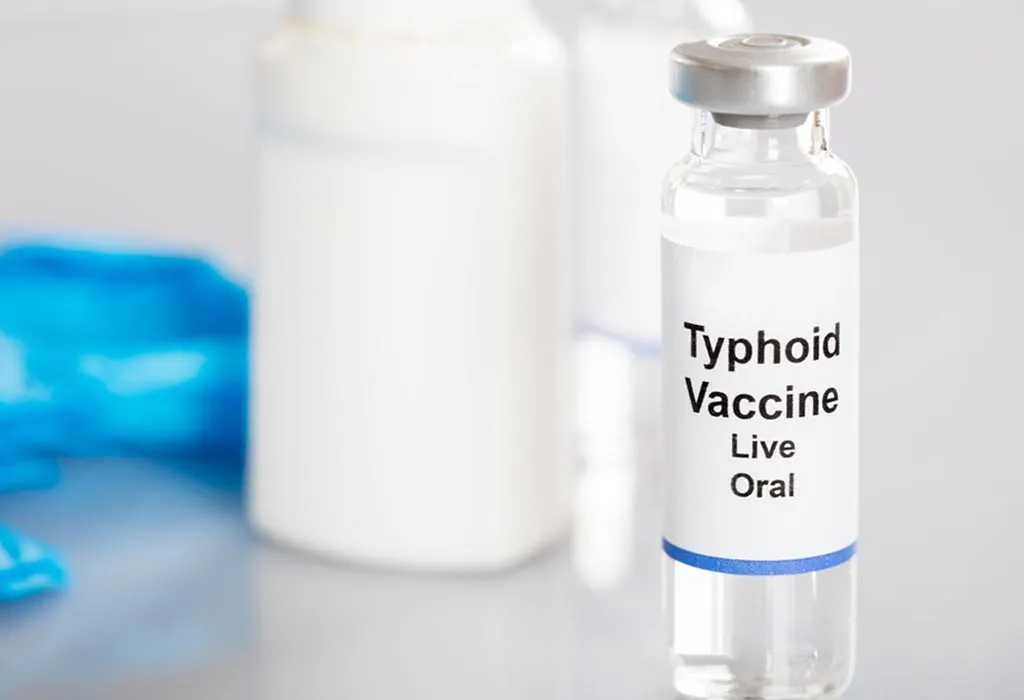
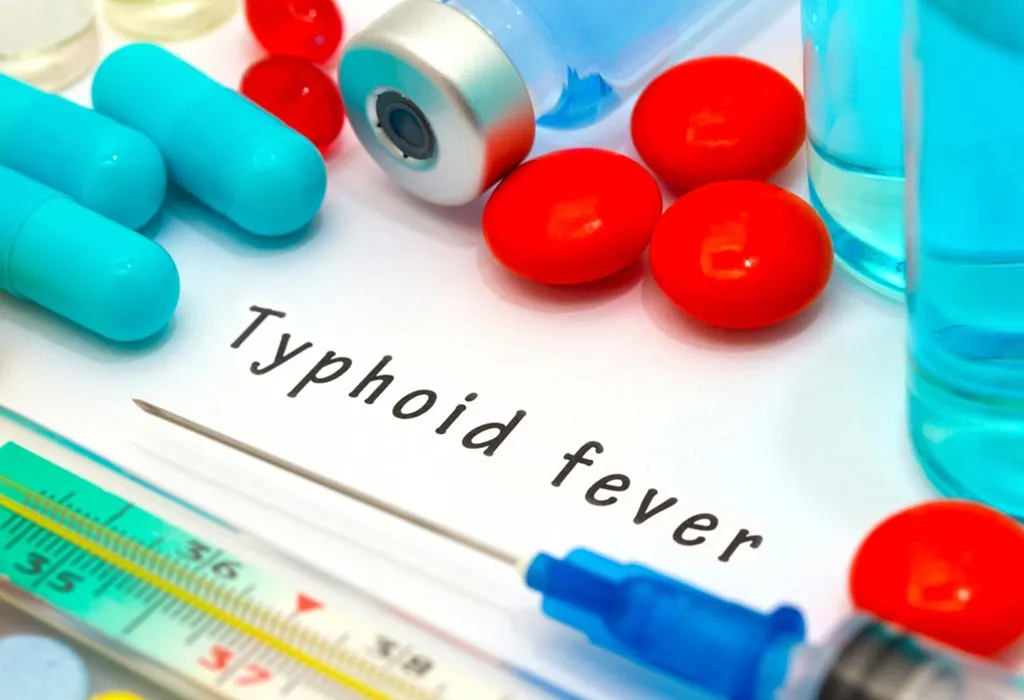
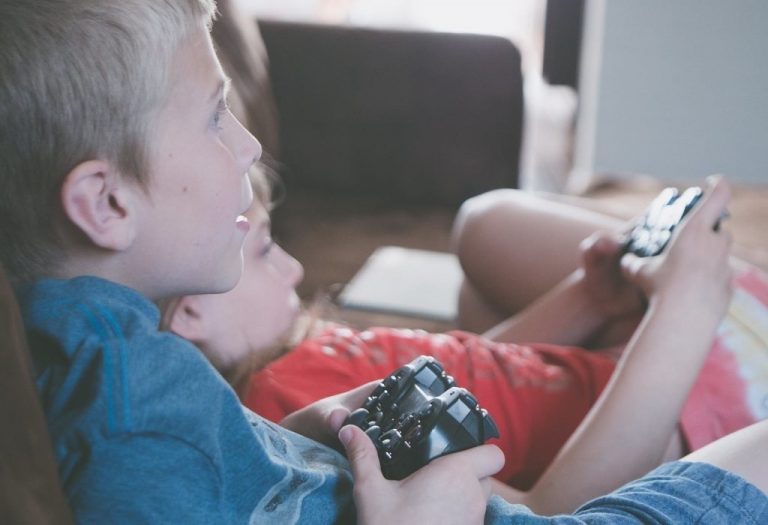

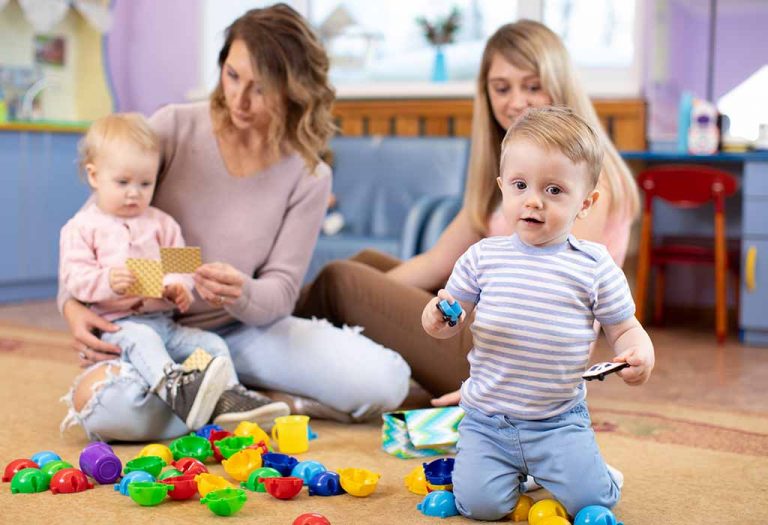
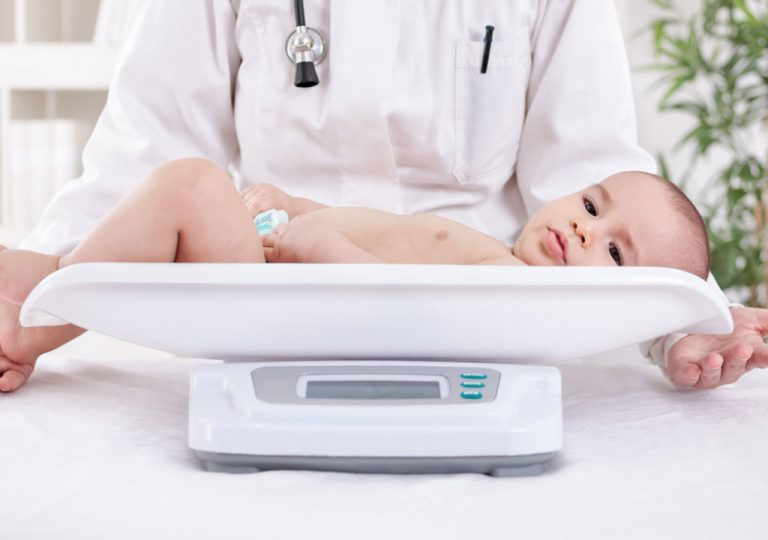
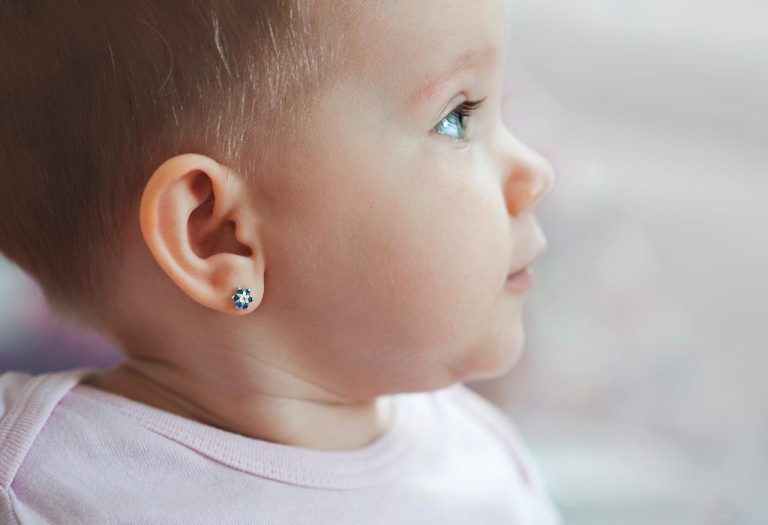


.svg)
















